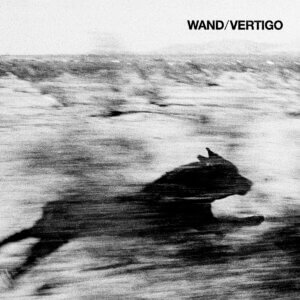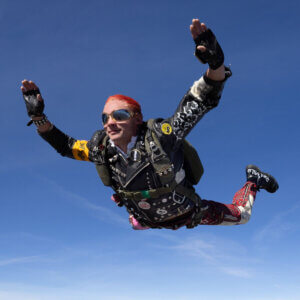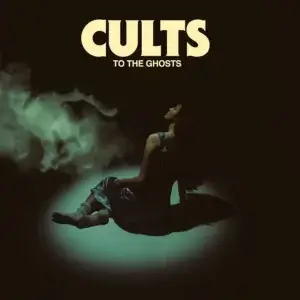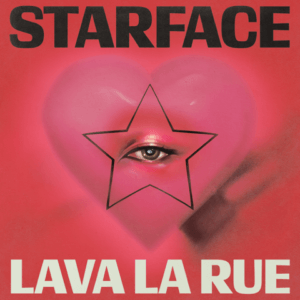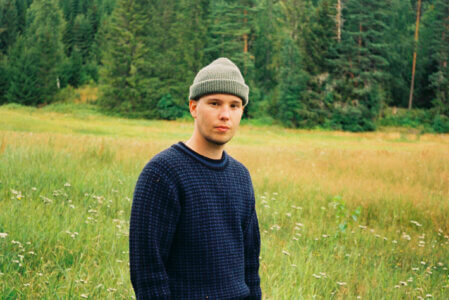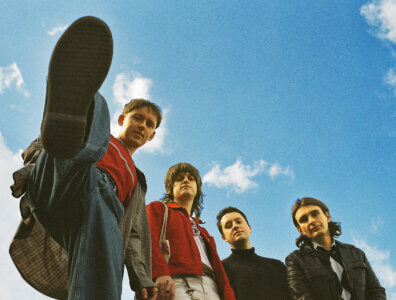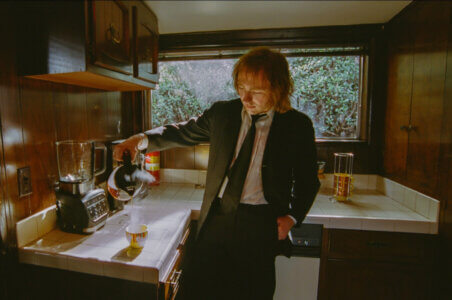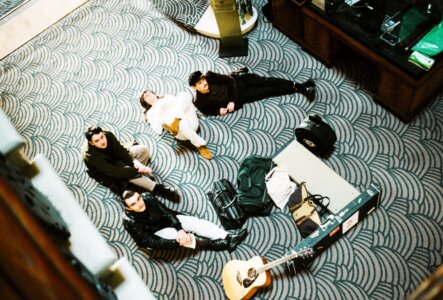FUR Are Excited About The Future
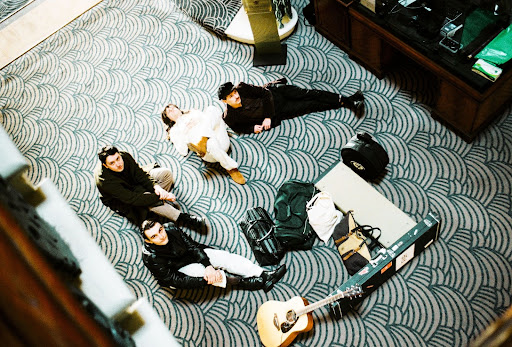
When You Walk Away, the debut album from Brighton’s FUR, kicks off with a jangly guitar melody that could be best described as “eagerly infectious” and the rest of the album follows suit. At turns both surging with sonic intensity and winsomely relaxed, and consistently charismatic, When You Walk Away’s heart is always in plain sight, in no small part thanks to frontman William Murray’s (known as “Murray”) earnest songwriting and delivery. “I’ve always dreamed of being anybody else but me,” he confides on one chorus. But FUR know how to pay homage while letting their hearts shine through. I spoke with Murray about the album’s impending release, FUR’s formation, and his musical background.
This interview has been edited and condensed for clarity
Northern Transmissions: How are you feeling with your debut album about to drop?
William Murray: I’m feeling very good. There are different stages, so I think it’s quite a weird one. Cuz, obviously, in the buildup to it, the words “the album” seemed, for a long, like such an abstract concept. And then you go through the stage of actually planning it and actually making it, and it’s still in this sort of limbo of you know it’s a real thing and it’s becoming a real thing, but it’s still this abstract thing you talked about for so long. And then there’s stages afterwards, that I’m just out of now, where you finished it, and you’re still listening back to it, and you kind of can’t help but maybe listen to it in more of critique-y way. And then there’s the stage, which I’m in now, which is the excitement of finally having it about to be born into the world. I listened back to the whole thing for the first time in a few months the other day, and it was the first time I really felt like I was listening to it as a consumer, as a listener. And it was a great experience. I’m really excited now.
NT: The way it flows, it feels like every song has a purpose. Did you have to let go of any songs that you otherwise wanted to keep because it affected how the album moved?
WM: All of us had kind of had our own goes at saying what we think [the tracklisting] should be. And once we had actually recorded all the tracks and we could listen to them, then it kind of made a little bit more sense. And there were a few, like “Untitled,” “If Only,” and “Unknowing You” which are now the B-sides. And then there are a few, the actual writing process for us started quite a while ago, and a few of the ones that are contenders ended up on the Facing Home Mixtape that we self-recorded during lockdown. So, we didn’t really feel like there was too much that kind of got missed off and is now kind of fallen into the abyss and gone. But the tracklisting, it was both a very intentional and thought-out thing, but also, it kind of fell into place when we finished the record.
We kind of wanted to embody the theme of the record, which is a post-coming-of-age thing. It’s a reflective outlook on the coming-of-age part of your life and how different it seems when you’re in it, to when you’re in your mid-twenties and you’re looking back on it, thinking, at that time, it was the most important part of your life. And you kind of reflect on that and think, “Hang on, none of the things that I was fretting about when I was 17, 18, are actually of any importance to me now.” So, we wanted to make it feel like a comment on that. And so, all of the kind of fast- paced singles and the exciting tracks, that sort of boisterous mood, coming in the first half, and then there’s the turning point, “No Good For You,” which comes in a little bit abrupt, ‘cuz it’s just like, hard-hitting rock, and then suddenly, it’s this acoustic track. And from then on, the rest of the album kind of hits a more mellow tone, of an introspective sort of thing. So, that was quite a conscious thing. And when we put the tracks in order, it just felt really good. There’s a good run, which is “What I Am” into “Wild Heart” into “Love You All The Time,” which are all in the key of E major. So those three particularly stand out as kind of a medley, almost, they almost feel like one.
NT: It reminds me of how Arctic Monkeys albums will start off super-energetic, and get calmer in the second half.
WM: We laughed about, “If you’re just interested in the fast-paced, kind of jangly sound of Fur, then you only need to listen to the first half, and then you can stop.” We’re not gonna force you to sit through the whole record (laughs). For me, it’s something really important. We wanted it to feel like more than just a collection of songs, and more like a bit of a statement and a feeling. And I think that’s really helped with [“When You Walk Away Pts. I and II”] bookending the album. I feel like when you get to “Holding Up the Sun,” the penultimate track, you kind of forget that you’re listening to the same album, cuz it’s taken you through so many different things. And then you hear “When You Walk Away Pt. II,” and it just brings you back to the beginning, full circle, and it kind of all rounds itself off and encapsulates itself really well.
NT: How did Fur come together?
WM: We met in Brighton. We were all there for uni. And I had moved down, having started the band with [former guitarist] Harry [Saunders] cuz we lived quite close to each other in Hertfordshire and Bedfordshire, north of London. We had gotten together and written a few songs, and then we took the project down to Brighton, with the aim of finding a bassist and a drummer. And we found [bassist William] “Tav” [Taverner] cuz he needed a house for his first year of uni. And we had had someone drop out of our house share. So, on Facebook, he was like, “Hey, I noticed you got a houseshare going.”
And we said, “Yeah, as long as you play bass or drums, you can have the room.” And he said, “Cool, I play both.” Which is a lie; he doesn’t play drums [laughs] And then we met [drummer Flynn Whelan] on a night out. He was just a random guy at the bar. And we just weirdly approached him and said, “Do you play drums? Do you wanna be in our band?” And he said, “Yeah, how’d you know?” The next day, we had a rehearsal where we just played probably the same song over and over again for a few hours. And then, yeah, just toured the Brighton circuit. There’s a lot of really good clubs and pubs to play at around Brighton. And then Josh [Buchanan] joined to play keys just to add another dimension to the live show. As we kind of developed our sound a bit, we started using piano and glockenspiel and stuff. So, we needed someone to do that. And then, when Harry left the band, Josh stepped up to the guitar role, and started writing songs for the band, and he’s a very, very talented songwriter. So, that’s where kind of the “newer era” of Fur’s sound was born. And then the rest is history.
NT: Did you always want to be a vocalist?
WM: My mum’s a singer. My dad’s a very good musician, a multi-instrumentalist and great pianist. And he’s a good singer as well. So, I’d always been brought up singing and playing music for various different things. And I started playing guitar when I was about 10 or 11. The guitar is such a great instrument, cuz you can sit wherever, and you can play whatever, and you kind of just accompany yourself. So, I started singing a bit more around that sort of time when I was learning songs. And then, I think I was about 15 or 16 when I started writing my own music. And at the point, where you’re sitting in your bedroom and you’re writing your own music, naturally, you’re gonna sing it. And yeah, I just sort of found my voice a little bit. I think singing is such a confidence thing. If you have the confidence to just go for it, I think most people can sing, unless you’re tone-deaf, which is rare. I’ve always been quite – I wouldn’t say controlling – but perfectionist, when it comes to things. And I think – when I’m writing music – and I’ve got the idea in my head, then naturally, who else is better to perform it vocally than myself? That’s kind of the main thing that led me into being a singer. Now, I just love it. I absolutely love it.
NT: Do you have any particular artists that have influenced your singing, or just your music in general?
WM: I think three artists would be Alex Turner from Arctic Monkeys. When I was fifteen, that was kind of the guy I looked up to. And then, Julian Casablancas, shortly after that. And Franki Valli had always been a voice I admired. That sort of high-pitched falsetto singing is something that kind of rubbed off and is present in our music.
NT: You’ve talked about how you’ve found an audience in countries like Indonesia and Brazil. Do you have any idea of how you gained those followings?
WM: It was around the time that artists and indie songs started just gaining popularity on YouTube. And there’s just something in internet algorithms that, as soon as one place starts to really like it, and it picks up a bit of pace, it just exponentially grows. And so, I guess it just came from there. And the internet is such a wild tool, in like, you can just reach every single corner of the globe, and you never know how people will react or where people will share it or who’s listening. A lot of the lyrics feel very inspired by personal experiences.
NT: Do you take a lot of inspiration from things you’ve gone through?
WM: Yeah, massively. I’ve always kind of found the introspective writing and writing about situations that you’ve been through or experienced is definitely where I get my inspiration to write from. And it has its positives and negatives. A negative is possibly that, quite a lot of the time, if I’m just in a really happy mood, everything is going smooth, I don’t necessarily feel like I’ve got a lot of drive or a lot to sing about or write about. That’s the biggest theme of the album, the lyric, “When you walk away, don’t turn back” is something that everyone should be able to listen to and take something from, at any stage of their life. I think for us, it came at post-coming-of-age time when you’re in your mid-twenties and you hit that age, and you kind of look back on the times you thought were really important when you were going through them, and how relationships and friendships and places and all the things you might leave behind when you move away, just reflecting on them and realizing it’s something that builds your character and builds you as a person.
And that was definitely something that we had shared as a band. Obviously, we were with each other and touring and good friends with each other from the ages of 18 to now, 24 to 27. I think you kind of see a lot more of that realization in your friends in helping them through breakups or things like that. And so we just wanted to get that across. And I think it’s something that, as musicians, we’ve gone through all of that whilst also developing our sound and our band. And I think that’s the main thing that kind of is in this album is in that period of our lives and how we reflect on it.
NT: Were you always looking to have a career in music, or did you have other goals or expectations?
WM: I’ve always loved music. And it’s always been a big part of my life. But I think there’s always a certain stigma around pursuing any creative and competitive kind of career, which music is and I guess, like acting, and those sort of things, and being an artist of any form. So, I’ve never really seriously considered it, until I started doing music technology at A-Level, so just before going to uni. And that was what I wanted to do. And then, I went to some open days for universities, and one of them was in Brighton. And I was with my dad, and he was maybe in a generation where it wasn’t anywhere near as easy to pursue that kind of career. We sat down, and they mentioned that there was a songwriting course, and my dad just said, “Oh, what I would’ve done. I would’ve killed when I was going to university for an opportunity to do a songwriting course.” They just didn’t have that in his day. And that kind of stirred me to be like, “Okay, hey. I song-write and I love it. And now I’m kind of being turned towards to actually, yeah, it is a doable career and it is something, if you love, you should try and pursue. And so, I just thought “Fuck it, I’m just gonna do songwriting instead.” And, yeah, that just led me to Brighton and to meet all the other guys and everything that came from that. So, I guess I kind of owe a lot of it to that kind of split-second decision.
NT: Do you know what you would do if you weren’t making music?
WM: I have no idea. I’d always love to have played football. I know that’s probably an even more unrealistic career. I still love football, supporting football, and playing a little bit. So, I guess that would’ve been, like, a dream scenario. But I think my heart’s just rooted in a dream scenario. So, I think if I wasn’t in a band, I would be doing something in the music industry. I’ve got my sights in the future on doing bits of producing and helping others create records, and you know, just maybe working in a studio or something.
NT: What are your hobbies outside of music?
WM: I spend most of my time just playing guitar and writing songs. I like going to see live music when I can. I’ve got quite a few friends who are down here in Brighton that are in bands, so just going out to venues in Brighton and seeing music. I watch quite a lot of TV [laughs], so TV series and film and stuff. Flynn’s a massive film fan. So, he spends a lot of his time watching and rating films. And then, I absolutely love football. So, I’m watching football a lot of the time. I’m a big Chelsea fan, same with Tav’s a big Southampton fan. But music takes up most of the time.
Order When You Walk Away by FUR HERE
Latest Reviews
Tracks
Advertisement
Looking for something new to listen to?
Sign up to our all-new newsletter for top-notch reviews, news, videos and playlists.
